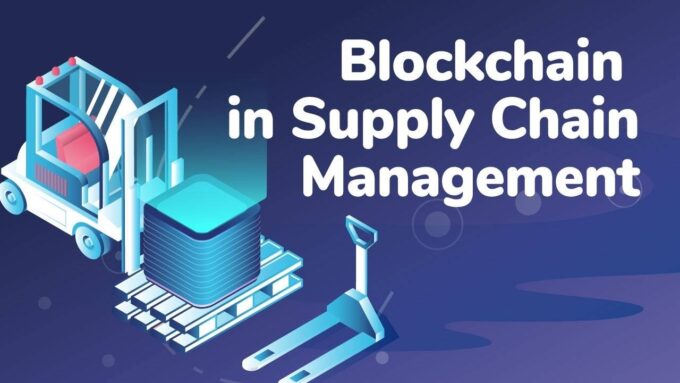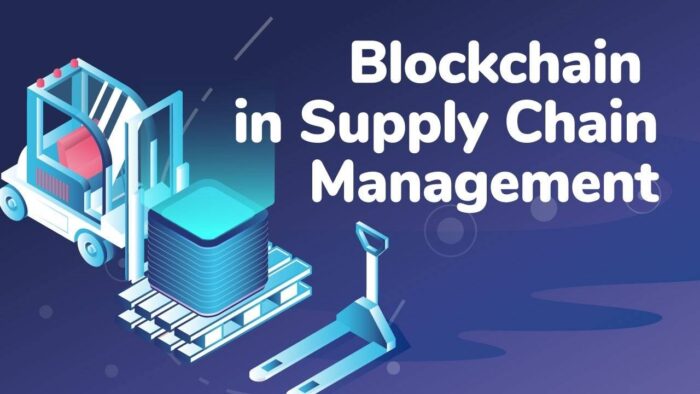

The implementation of blockchain has penetrated many industries, one of which is the supply chain. There are many benefits of implementing advanced blockchain technology for more optimized supply chain management. To learn more about how this cutting-edge technology improves supply chain management or SCM, check out the following article.
About Blockchain Technology and SCM
There are significant differences between blockchain-integrated supply chains and traditional ones. Automation of transaction data is one example of the application of blockchain to SCM (Supply Chain Management). Traceability can be applied throughout the supply chain, improving the quality of business management.
Blockchain supply chain systems are usually closed or private with permissions on access. In the case of Bitcoin, it is possible to implement public access in it. Even so, there is also the possibility of open cooperation opportunities if needed in related businesses.
There are at least 4 main elements that play an important role in a blockchain-based supply chain system:
- Registrars who provide varied identity access
- Organization developing blockchain rules and specifications, defining a standard schema
- Certifiers, to certify relevant individuals in their roles in the supply chain
- Auditors, providing registered certification, have the authority to certify business-related parties. The purpose of auditors in SCM is to ensure the credibility of the system is maintained properly.
Each party needs to adjust the terms of the contract first, after which the product can be sold to the other party. Smart contracts are required so that the exchange of goods can be properly validated. After the process, the ledger is updated according to the successful transaction.
SCM features a system of transparency that can help improve overall supply chain performance. Customers can easily see the details of the entire transaction from the processing of raw materials to the very last stage.
Blockchain Technology for Traceability
One important component in the supply chain is traceability. Blockchain can help track overall supply chain activities efficiently. We can access various transaction details ranging from certification, transaction date, product price, product origin, and various other important information.
Product tracking can be done much more easily without having to go through troublesome or overly complex procedures. Although there are many processes in a transaction, it can still be made easier with the implementation of blockchain from upstream to downstream. The benefits of blockchain in supply chain traceability are very important for businesses regardless of their sector.
Blockchain has unique characteristics such as decentralized and open source that make the supply chain can be more improved than before. Through the various advantages of the blockchain system. SCM can be implemented more smartly. All processes are safe because we can monitor products better.
The tracking of each product is aided by robust auditing, the visibility of which can be applied simultaneously or at least closely thanks to the real-time nature of blockchain. Both distributors and manufacturers can easily record various important information they need. With access to detailed product history information, buyers can have more confidence in the product.
In other words, business credibility can be well supported if blockchain is integrated into the supply chain. Consumers can rest assured that they are buying products from producers that adhere to every applicable rule and prioritize quality. When certain problems are found, be it from non-compliance with quality standards or health issues, action can be taken immediately.
Read also : Sustainable Urban Environments: Challenges and Strategies
Exploring Blockchain Integration Benefits In SCM
To understand more about the benefits that blockchain can bring to SCM, take a look at the points below:
– Brand Verification
In any transaction, brand authenticity is one of the important aspects to consider, especially for consumers. Blockchain can identify the entire production process so that the authenticity of the brand can be verified. Through the information provided by the blockchain, consumers can easily know about the authenticity of the product.
Consumers can avoid product counterfeiting or unauthorized sales. Product brands can also be well-protected thanks to the benefits of brand authenticity verification. A brand will certainly be harmed if other parties act on behalf of the original brand and then do not provide quality products.
– Accurate Tracking
The movement of goods can be accurately tracked with the help of blockchain in the business supply chain. In the supply chain, products will be moved several times and all of them can be easily recognized. Each delivery process will be recorded using a new block.
It’s not just consumers who need product tracking transparency, manufacturers and distributors also need it for various purposes.
– Tracking Resources
To track resources, blockchain technology can also be relied upon to make the supply chain more transparent. We can find out detailed product information such as the use of certain chemicals, types of raw materials, and other resource information. Some parties need this kind of information to comply with applicable standards.
Resource tracking is required to meet sustainability standards, and comply with business regulations, for ethical or other purposes. Comprehensive information on resource use avoids misunderstandings between parties regarding product specifications.
– Improved Security
In terms of risk management, blockchain also has an important role in the supply chain. In managing the supply chain, it is very important to pay attention to data security. Counterfeiting and cyber threats must be properly avoided to minimize adverse effects in the future.
Advanced blockchain can provide optimal security with its decentralized system and advanced encryption technology. The flow of data in the blockchain network will be completely secure, data manipulation is not possible. If certain changes are required, there must be sufficient approval in advance.
The data in each transaction can also be well protected. Both manipulation and cyber-attacks can be prevented with the implementation of blockchain technology.
Read also : 5G Implementation: Benefits, Opportunities, and Challenges
– Supporting Collaboration
Another benefit of blockchain is that it supports optimal collaboration between related parties. Blockchain records various important information that can be accessed by those who have enough authority. Each party can share and manage data.
All these activities can run transparently and safely. Ultimately, businesses can increase their credibility through optimal, transparent coordination between relevant parties.
– Simplify Administration
Various manual administrative activities can be avoided with the implementation of blockchain for SCM. Checking, processing, validation, and monitoring of transactions can be done in a more automated way. Such a concept can avoid unnecessary costs and avoid the use of a lot of time. So, those are some of the benefits from bellevuecn.com that can be gained from a blockchain-integrated supply chain.
